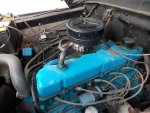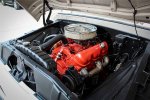85_Ranger4x4
Well-known member
No, not really. The numbers are the numbers. Feel free to make your case for how they're not accurate
If you go back and re-read, the extra 30 gallons referred to WEIGHT.... diesel drivetrains are heavier, diesel fuel is heavier per gallon. Adding 30 gallons of gasoline only brought the gasser up to weight parity with the diesel.
Yes, volume of fuel is another consideration. Of course you glossed over that with the extra 30 gallons on board (same weight for weight) you'd also have an additional **325 miles of range**
Don't need the range, and don't want to take up the volume?
25 gals x 20 mpg Diesel = 500 miles of range.
33 gallons x 15 mpg Gasoline = 500 miles of range.
Therefore, to have range parity, a gasoline vehicle would have to carry an additional 8 gallons. The gasser would still weigh a lot less than the diesel, as 33 gallons of gasoline weighs 218 lbs versus 25 gallons of diesel at 180 lbs... a 38 lb addition. The diesel engine option alone offsets this 38 lbs by a large amount. My guess is that most guys on this forum could lose 38 lbs... yet they don't, instead blaming what they carry
To play devils advocate you can sometimes get heavier duty suspensions with the diesel over a gas which would offset the weight of the engine from a legal standpoint. Not sure on the newer trans (older trucks, at least F-series were similar gas/diesel) but the rest of the driveline is generally about the same.
Still going to be more nose heavy though.



